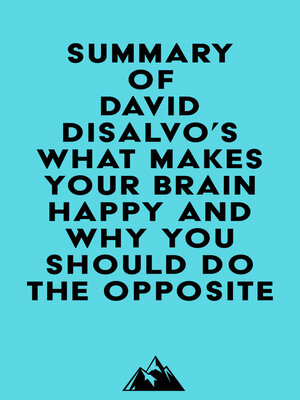Summary of David Disalvo's What Makes Your Brain Happy and Why You Should Do the Opposite
ebook
By Everest Media

Sign up to save your library
With an OverDrive account, you can save your favorite libraries for at-a-glance information about availability. Find out more about OverDrive accounts.
Find this title in Libby, the library reading app by OverDrive.



Search for a digital library with this title
Title found at these libraries:
| Loading... |
Please note: This is a companion version & not the original book. Sample Book Insights: #1 Orca cultures are based around hunting behavior, and they learn the best, tried-and-true hunting techniques from each other. When one orca tries a killing method that works well, others take notice and copy it. #2 The orca equivalent of a human meme is the technique of hunting sharks that orca culture has passed down. The orca brain is advanced enough to make this meme transfer effective beyond what any other creature in the ocean is capable of achieving. #3 Our brains are constantly seeking certainty, and they will always prefer certainty over ambiguity. We need to understand that when we feel right about a decision or a belief, our brains are happy. #4 Selective attention is the tendency to orient ourselves towards and process information from only one part of our environment to the exclusion of other parts, regardless of how obvious those parts may be.






